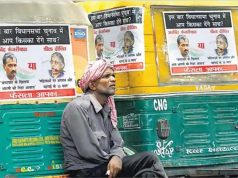At a time when the Indian economy is in serious trouble, the Government has done well to appoint Dr Raghuram Rajan as the 23rd Governor of the Reserve Bank of India (RBI).
Dr Rajan is a very accomplished and experienced man with his earlier stints as the Chief Economist at the International Monetary Fund, as his current position of Chief Economic Advisor to the Government of India, and as a professor at the University of Chicago’s Booth School of Business, to name a few. He was also the chairman of the high level committee in financial sector reforms set up by the Planning Commission in 2007. The report of the committee, ‘A Hundred Small Steps’ is well worth the read.
His appointment to the office of the Governor of RBI comes at a very opportune time. Opportune not because it is a good time to occupy the office, but because we needed a competent man to ride us through these troubled times. In Dr Rajan, we may have the right man.
The challenges facing Indian economy today are numerous and onerous. India is on the verge of a sovereign credit rating downgrade. Indian rupee is trading at its historic lows and the worst may not be over yet. All this when India enters into an election year with the lowest growth rate seen in recent times. As has rightly been pointed out by Dr Rajan himself, there is no magic wand to fix economic challenges. All this poses a great challenge to anyone in-charge of the country’s monetary policy. However, under the circumstances, I cannot think of anyone more suited to do the job.
We hope that Dr Rajan disconnects himself from any and all demands from the North Block (Ministry of Finance) and the South Block (Prime Minister’s Office). Historically this has not been the case. It is no secret that Finance Ministry wields considerable influence over the RBI. Dr Rajan’s views on economy and polity as suggested through his numerous publications, suggests that he may have a difficult time if he plans to stick to his guns. For economy’s sake, we hope he does.
In what follows, we have tried to look at some of the features of the institution that Dr Rajan will soon be heading.
RBI’s Conflicting Goals
India’s central bank has historically been marred due to conflicting goals which are themselves not very clearly defined. For example, on the one hand RBI has to ensure the overall macroeconomic stability while it is also in-charge of managing government debt (public debt management). The task of managing government debt at a low cost causes RBI to engage in activities such as keeping the interest rate too low, which poses problems for other objectives of monetary policy like price stability.
What is the role of a central bank? What are its primary objectives? What should be the policy instruments at its disposal to achieve those objectives? These are not straight-forward questions to answer. In RBI’s case, things may be more muddled than some of the other central banks around the world. Changes required are systemic and may need more time than we can afford right now. Therefore, for now it becomes even more imperative to minimise the damage.
The Problems with the Data
Present RBI governor D Subbarao has on numerous occasions suggested that the quality of macro data available in India is very poor. For example, wholesale price index (WPI) and the index of industrial production (IIP), two of the indices that RBI looks at while formulating changes in its monetary policy. As is evident from the name itself, WPI is not a good proxy to observe changes in average prices faced by the common man since it looks at wholesale prices. The volatility in IIP data is such that a majority of market participants have stopped following the trend in IIP and have instead started following other proxy measures (such as HSBC PMI score, car and van sales number, etc.) to make a sense of the real economic activity.
Given that the inputs (WPI and IIP) are either not the right measure or are unreliable at best, it is only logical that the output (changes in monetary policy) is questionable. It is hard to imagine a sailor to be headed in the right direction with a broken compass. Any substantial improvement in the quality of data would require changes in established institutions and processes. The enormous body of economic research that Dr Rajan has done should come very handy in deciding what indicators to look at and what to ignore.
Putting our two cents worth in, we suggest that Dr Rajan and his team gives greater focus to trends in money and credit aggregate numbers (real inflation) rather than worry about fluctuations in headline numbers of price indices, whether it is wholesale prices or consumer prices.
Concluding Remarks
Raghuram Rajan is 50 now. This is a very young age for a man with academic and intellectual pursuits. Governorship at the RBI is just one more addition to an already glittering list of accomplishments of Dr Rajan. We wish him all the best as the new custodian of India’s monetary policy.
Post Disclaimer
The opinions expressed in this essay are those of the authors. They do not purport to reflect the opinions or views of CCS.





